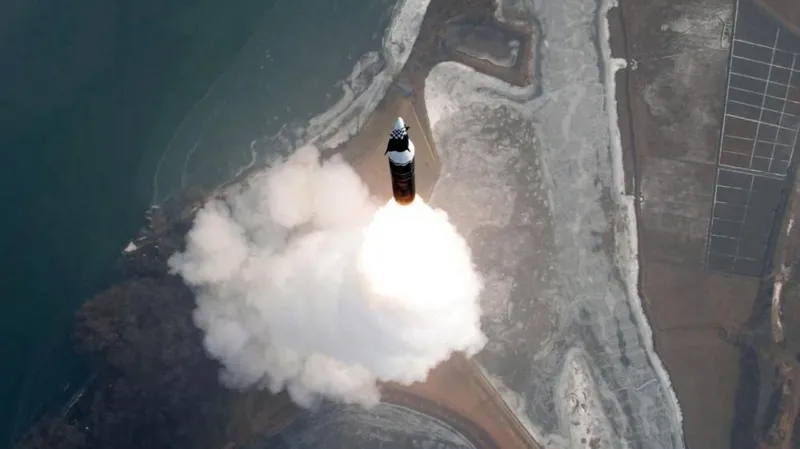Biden plans to send $8bn arms shipment to Israel

President Joe Biden has announced plans to send an $8 billion arms shipment to Israel, marking a significant move in U.S. support for its ally in the Middle East. The decision, which has drawn both praise and criticism, reflects the Biden administration’s ongoing commitment to ensuring Israel’s security amidst rising tensions in the region. This military aid package, one of the largest in recent years, is intended to bolster Israel’s defense capabilities, particularly in the face of ongoing security threats from neighboring countries and militant groups.
The $8 billion arms shipment is expected to include advanced weapons systems, fighter jets, and precision-guided munitions. These military assets are designed to enhance Israel’s defense infrastructure, providing the country with the tools necessary to maintain its military superiority in a volatile region. Israel has long been a key U.S. ally in the Middle East, and the U.S. government has historically provided significant military aid to ensure that Israel maintains a qualitative military edge over its adversaries.
The arms package comes at a time of heightened tensions in the Middle East, with ongoing conflicts between Israel and militant groups such as Hamas in Gaza, as well as concerns about Iran’s nuclear ambitions and its influence in the region. Israeli officials have welcomed the news, viewing the shipment as crucial to maintaining their deterrence capabilities and securing their borders. The U.S. has repeatedly expressed its unwavering support for Israel, particularly in light of threats from Iranian-backed groups and other hostile forces.
While the shipment of arms is being celebrated by Israel and many of its supporters, the decision has sparked criticism from various quarters, both domestically and internationally. Some lawmakers, particularly those on the left of the political spectrum, have voiced concerns about the potential for escalating violence in the region. They argue that continued military support for Israel could contribute to further instability, particularly in the Palestinian territories, where tensions remain high. Critics also point to Israel’s treatment of Palestinians and the ongoing occupation of the West Bank, questioning whether the U.S. should be providing such significant military assistance while human rights concerns persist.
Human rights organizations have similarly raised alarm over the potential consequences of the arms shipment. Groups like Amnesty International and Human Rights Watch have called on the U.S. to reconsider the delivery, urging that military aid to Israel could be used in ways that violate international law. These groups have highlighted instances where U.S.-supplied weapons were allegedly used in Israeli military operations that resulted in civilian casualties in Gaza and the West Bank. They argue that by sending more weapons, the U.S. is essentially enabling further violence and contributing to a cycle of conflict.
In response to these concerns, the Biden administration has emphasized that the arms shipment is meant to help Israel defend itself against external threats, not to be used in offensive operations against Palestinians or other regional actors. White House officials have stated that the U.S. remains committed to a two-state solution to the Israeli-Palestinian conflict and that military aid to Israel is part of a broader strategy to ensure stability in the region. However, critics argue that the U.S. has failed to leverage its military support to push for meaningful peace negotiations or to hold Israel accountable for its actions in the occupied territories.
The arms deal also comes at a time when Israel is facing increased political polarization, with Prime Minister Benjamin Netanyahu under scrutiny for his handling of both domestic and foreign policy. The shipment is seen by some as a way to reinforce Israel’s military position as it deals with internal challenges, including protests and political unrest. It also highlights the close relationship between the U.S. and Israel, which has endured across multiple administrations, regardless of party affiliation.
In addition to the military aid package, the U.S. government has also pledged continued diplomatic support for Israel. The Biden administration has made it clear that it stands by Israel’s right to defend itself, especially in the face of threats from Iranian-backed forces in Syria and Lebanon. The U.S. has also continued to provide intelligence and strategic assistance to help Israel navigate complex security challenges in the region.
The decision to send the $8 billion arms shipment is a clear signal of the Biden administration’s commitment to Israel’s security, but it also underscores the ongoing complexities of U.S. foreign policy in the Middle East. As tensions in the region continue to rise, the U.S. will likely face growing pressure from both sides of the Israeli-Palestinian conflict, as well as from the international community, to strike a balance between supporting Israel’s right to self-defense and addressing the broader issues of human rights and peace in the region.
Ultimately, the $8 billion arms shipment to Israel is a reflection of the intricate and often contentious relationship between the U.S. and Israel, one that continues to shape the geopolitical landscape of the Middle East. While the move is a significant step in reaffirming U.S. support for its ally, it also brings to the forefront the ongoing debate over the role of military aid in promoting long-term peace and stability in the region.






